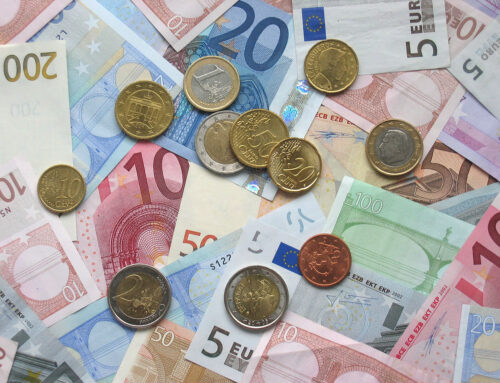Jupânul NATO, Anders Fogh Rasmussen a cerut ţărilor UE să cheltuiască mai mult pentru apărare, în ciuda crizei economice, sau vor risca să piardă solidaritatea SUA.
Rasmussen a spus în deschiderea prezentării raportului pe 2012 al alianţei:
“If current defence spending trends were to continue, that would limit the practical ability of Nato’s European nations to work together with their North American allies. But it would also risk weakening the political support for our alliance in the United States.”
Rasmussen a mai adăugat “the most important military power in the world” avertizând apoi:
“The security challenges of the 21st century – terrorism, proliferation, piracy, cyber warfare, unstable states – will not go away as we focus on fixing our economies.”
Fogh Rasmussen a spus de asemenea şi că “the rise of emerging powers could create a growing gap between their capacity to act and exert influence on the international stage and our ability to do so.”
Raportul NATO anunţă că SUA a efectuat 72 procente din cheltuielile pentru apărare a ţărilor membre NATO în 2012, faţă de 68 procete în 2007. Franţa, Germania, Italia şi Marea Britanie au constituit ţările care au asigurat majoritatea restului de cheltuieli, în procente, dar contribuţia Franţei s-a redus.
“This has the potential to undermine alliance solidarity and puts at risk the ability of the European allies to act without the involvement of the United States,”
S-a spus în raportul menţionat, în care, în continuare s-a precizat că la nivel global, cheltuielile militare ale NATO au scăzut la 60 de procente în 2011, de la 69 în 2003 şi vor atinge 56 de procente în 2014.
Uniunea Europeană a fost asemănată cu Vaticanul… iar temerile legate de capabilităţile defensive ale UE nu sunt noi.
Fostul şef al Apărării SUA, Robert Gates, a tras un semnal de alarmă la Bruxelles încă din 2011:
“The blunt reality is that there will be dwindling appetite and patience in the US Congress – and in the American body politic writ large – to expend increasingly precious funds on behalf of nations that are apparently unwilling to devote the necessary resources or make the necessary changes to be serious and capable partners in their own defence,”
Temerile nu se limitează la NATO.
Joi, în cadrul unei întâlniri între miniştrii de externe ai UE, reprezentantul Poloniei a declarat că Uniunea Europeană are nevoie de o forţă defensivă proprie.
“I think the Mali crisis shows this is necessary because the next crisis could unfold even more quickly and we need to be able to react instantly,”
“Let’s recall that events in Mali unfolded very fast. The terrorists crossed the line of contact and France reacted from one day to the next. But we know that in the EU, as in the Vatican, the wheels of state turn very slowly,”
Ultimele statistici ale Uniunii Europene demonstrează însă că unele dintre ţările UE cele mai afectate de criza economică cheltuie sume mari pe armament.
Iată, aici raportul din 14 Decembrie 2012.
Raportul arată că ţări membre UE au acordat sume mari pentru licenţele de export către Grecia (783 milioane de euro), Portugalia (397 milioane de euro) şi Spania (1.6 miliarde de euro).
“Portugal, in the last two years, reduced its budget for the purchase of military equipment by over 60 percent … Also for budgetary reasons, though not only for that, Portugal, in 2011, decided to withdraw from several military programs, such as NH90 helicopters,”
Sursa: EUObserver
– Iulian Iamandi –






ce misto or face englezii si americanii de asta – sa te cheme “Ceatza” si sa fii seful NATO ( 🙂 ce-a mai cetzoasa organizatie dupa planeta)
Sa cheltuie ei, ca ei pornesc razboaiele!
Si sa nu uite ca pana acum ei nu au venit niciodata sa ne ajute in lupta, dar noi ne-am tot sacrficiat pentru ei!
http://en.ria.ru/military_news/20130201/179177491/NATO-Urges-Lithuania-to-Increase-Defense-Spending.html
Daca NATO a ajuns sa stea in baza unor tari precum Lituania… mai bine nu se extindeau.
Crezi ca nu le era mai bine fara tarile ex-sovietice la aceeasi masa?
Dimpotrivaaaa! Daca nu se extindeau, se duceau dracu! Lumea ar fi remarcat ca tarile din ceea ce ei numeau estul europei puteau sa isi vada de ale lor fara sa fie invadate ori macar amenintate, iar ca efect probabil ca Nato se destrama, ramanand un nucleu “britanic” format din sua, canada, anglia plus o prietenie cu australia, noua zeelanda si japonia.
Un fel de Marea Britanie si Japonia.
@Greuceanu: razboaiele din Iugoslavia, Republica Moldova, chiar si cele din Transcaucaz, inceputul de conflict interetnic din Romania din anii ’90 “vin in sprijinul afirmatiei tale”.
Ce vina avem noi ca ei arunca banii ca fraierii pe tot felu de proiecte care in final sunt egale cu zero…?
Corect, Volk!
de ce nu sunt transparenti la inzestrare. de fapt apelul este sa le dam tot noi bani pt a se apara ei intr-un final. Cand am fost ultima data atacati nu am avut nici un sprijin. Pana cand o sa vad sprijinul infipt bine la noi nu o sa dau un sfant pt inzestrare decat daca este made in RO adica AK, Ag, LAROM, etc
Salut!
In situatia de criza in care ne aflam, mai lipsea sa fim certati si fortati sa cheltuim bani pentru bunastarea economiilor statelor bogate.
De ce nu isi fabrica Anglia, de exemplu, munitia armelor individuale in Romania? O parte din profit o putem folosi pentru plata in rate a unor avioane multirol cumparate din UE.